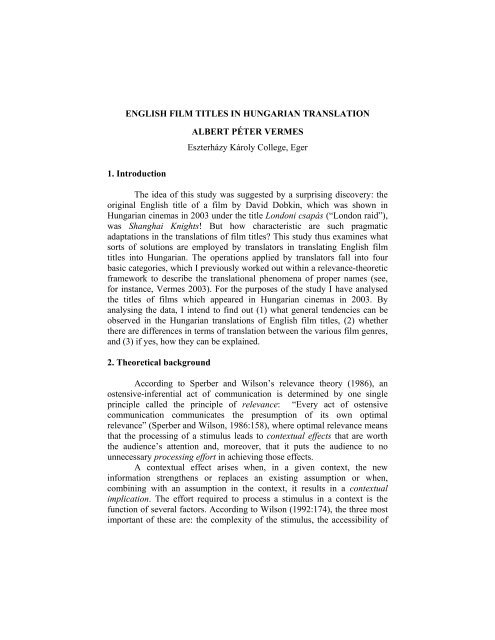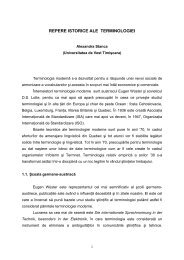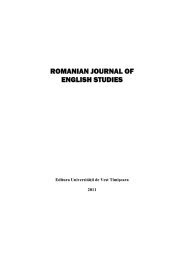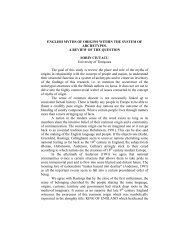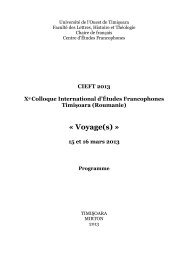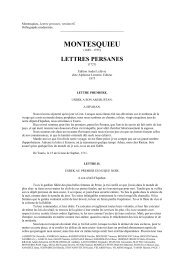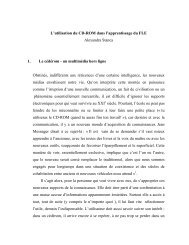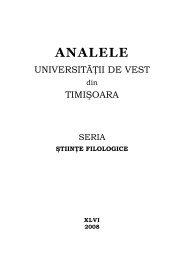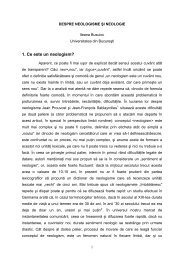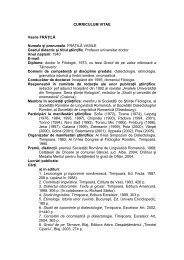TRANSLATION AND MEANING: A CULTURAL- COGNITIVE ...
TRANSLATION AND MEANING: A CULTURAL- COGNITIVE ...
TRANSLATION AND MEANING: A CULTURAL- COGNITIVE ...
Create successful ePaper yourself
Turn your PDF publications into a flip-book with our unique Google optimized e-Paper software.
ENGLISH FILM TITLES IN HUNGARIAN <strong>TRANSLATION</strong><br />
1. Introduction<br />
ALBERT PÉTER VERMES<br />
Eszterházy Károly College, Eger<br />
The idea of this study was suggested by a surprising discovery: the<br />
original English title of a film by David Dobkin, which was shown in<br />
Hungarian cinemas in 2003 under the title Londoni csapás (“London raid”),<br />
was Shanghai Knights! But how characteristic are such pragmatic<br />
adaptations in the translations of film titles? This study thus examines what<br />
sorts of solutions are employed by translators in translating English film<br />
titles into Hungarian. The operations applied by translators fall into four<br />
basic categories, which I previously worked out within a relevance-theoretic<br />
framework to describe the translational phenomena of proper names (see,<br />
for instance, Vermes 2003). For the purposes of the study I have analysed<br />
the titles of films which appeared in Hungarian cinemas in 2003. By<br />
analysing the data, I intend to find out (1) what general tendencies can be<br />
observed in the Hungarian translations of English film titles, (2) whether<br />
there are differences in terms of translation between the various film genres,<br />
and (3) if yes, how they can be explained.<br />
2. Theoretical background<br />
According to Sperber and Wilson’s relevance theory (1986), an<br />
ostensive-inferential act of communication is determined by one single<br />
principle called the principle of relevance: “Every act of ostensive<br />
communication communicates the presumption of its own optimal<br />
relevance” (Sperber and Wilson, 1986:158), where optimal relevance means<br />
that the processing of a stimulus leads to contextual effects that are worth<br />
the audience’s attention and, moreover, that it puts the audience to no<br />
unnecessary processing effort in achieving those effects.<br />
A contextual effect arises when, in a given context, the new<br />
information strengthens or replaces an existing assumption or when,<br />
combining with an assumption in the context, it results in a contextual<br />
implication. The effort required to process a stimulus in a context is the<br />
function of several factors. According to Wilson (1992:174), the three most<br />
important of these are: the complexity of the stimulus, the accessibility of


